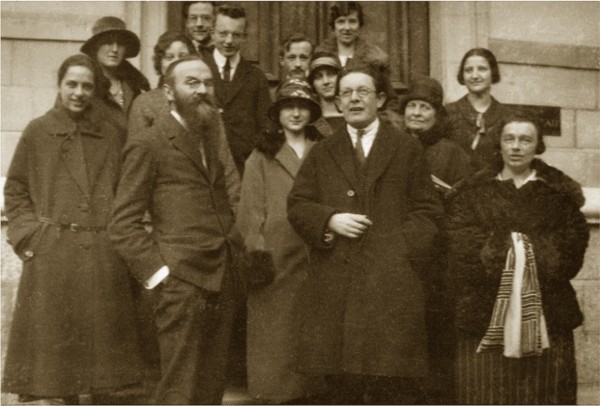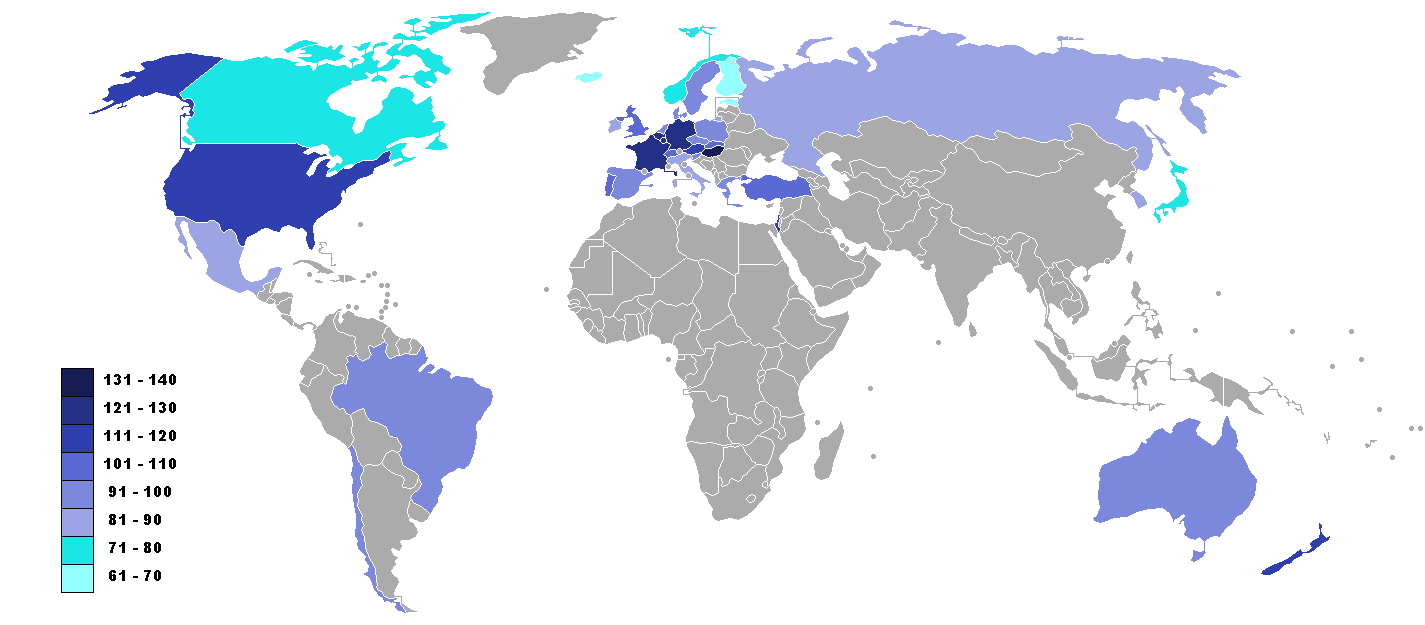|
Education System
The educational system generally refers to the structure of all institutions and the opportunities for obtaining education within a country. It includes all pre-school institutions, starting from family education, and/or early childhood education, through kindergarten, primary, secondary, and tertiary schools, then lyceums, colleges, and faculties also known as Higher education (University education). This framework also includes institutions of continuous (further) professional and personal education, as well as private educational institutions. While the education system is usually regulated and organized according to the relevant laws of a country, a country's education system may have unregulated aspects or dimensions. Typically, an education system is designed to provide education for all sections of a country's society and its members. It comprises everything that goes into educating the population. Educational systems may be structured in either centralized or decentrali ... [...More Info...] [...Related Items...] OR: [Wikipedia] [Google] [Baidu] |
Education
Education is the transmission of knowledge and skills and the development of character traits. Formal education occurs within a structured institutional framework, such as public schools, following a curriculum. Non-formal education also follows a structured approach but occurs outside the formal schooling system, while informal education involves unstructured learning through daily experiences. Formal and non-formal education are categorized into levels, including early childhood education, primary education, secondary education, and tertiary education. Other classifications focus on teaching methods, such as teacher-centered and student-centered education, and on subjects, such as science education, language education, and physical education. Additionally, the term "education" can denote the mental states and qualities of educated individuals and the academic field studying educational phenomena. The precise definition of education is disputed, and there are ... [...More Info...] [...Related Items...] OR: [Wikipedia] [Google] [Baidu] |
International Bureau Of Education
The International Bureau of Education (IBE-UNESCO) is a UNESCO The United Nations Educational, Scientific and Cultural Organization (UNESCO ) is a List of specialized agencies of the United Nations, specialized agency of the United Nations (UN) with the aim of promoting world peace and International secur ... category 1 UNESCO#Institutes and centres, institute mandated as the Centre of Excellence in curriculum and related matters. Consistent with the declaration of the decision of the 36th session of the General Conference (United Nations), General Conference and to ensure a higher effectiveness and a sharper focus, the IBE has defined the scope of its work as pertaining to: curriculum, learning, Teacher, teaching, and assessment. The IBE-UNESCO provides tailored technical support and expertise to all UNESCO Member States facilitating the provision and delivery of equitable, Inclusion (education), inclusive, high-quality education within the framework of Education 2030 Agend ... [...More Info...] [...Related Items...] OR: [Wikipedia] [Google] [Baidu] |
Musa Kraja
Musa Kraja (3 October 1938 in Shkodër – 13 June 2017 in Tirana Tirana ( , ; ) is the capital and List of cities and towns in Albania, largest city of Albania. It is located in the centre of the country, enclosed by mountains and hills, with Dajti rising to the east and a slight valley to the northwest ov ...) was a notable figure in Albanian education. He was an educator, doctor of pedagogical sciences, university professor, and an author of pedagogical works and biographical monographs. His contributions were recognized with the title of "Distinguished Teacher" (Mësues i Merituar). Biography Born on 3 October 1938, in Shkodër, Albania, Musa Kraja received his early education and pedagogical training in his hometown. He pursued higher studies in language and literature (1966) and history-geography (1968) at the Higher Pedagogical Institute in Shkodër. Later, he completed his university studies in history-geography at the Faculty of History and Philology, University o ... [...More Info...] [...Related Items...] OR: [Wikipedia] [Google] [Baidu] |
Educational Stage
Educational stages are subdivisions of formal learning, typically covering early childhood education, primary education, secondary education and tertiary education. The United Nations Educational, Scientific and Cultural Organization (UNESCO) recognizes nine levels of education in its International Standard Classification of Education (ISCED) system (from Level 0 (pre-primary education) through Level 8 (doctoral)). UNESCO's International Bureau of Education maintains a database of country-specific education systems and their stages. Some countries divide levels of study into grades or forms for school children in the same year. Organization Education during childhood and early adulthood is typically provided through either a two- or three-stage system of childhood school, followed by additional stages of higher education or vocational education for those who continue their formal education: *Early childhood education at preschool, nursery school, or kindergarten (outside the U. ... [...More Info...] [...Related Items...] OR: [Wikipedia] [Google] [Baidu] |
Educational Equity
Educational equity, also known as equity in education, is a measure of equity in education. Educational equity depends on two main factors. The first is distributive justice, which implies that factors specific to one's personal conditions should not interfere with the potential of academic success. The second factor is inclusion, which refers to a comprehensive standard that applies to everyone in a certain education system. These two factors are closely related and depend on each other for an educational system's success. Education equity can include the study of excellence and equity. Educational equity's growing importance is based on the premise that a person's level of education directly correlates with their quality of life and that an academic system that practices educational equity is thus a strong foundation for a fair and thriving society. But inequity in education is hard to avoid because of inequities in socioeconomic standing, race, gender, and disability. Educatio ... [...More Info...] [...Related Items...] OR: [Wikipedia] [Google] [Baidu] |
Education
Education is the transmission of knowledge and skills and the development of character traits. Formal education occurs within a structured institutional framework, such as public schools, following a curriculum. Non-formal education also follows a structured approach but occurs outside the formal schooling system, while informal education involves unstructured learning through daily experiences. Formal and non-formal education are categorized into levels, including early childhood education, primary education, secondary education, and tertiary education. Other classifications focus on teaching methods, such as teacher-centered and student-centered education, and on subjects, such as science education, language education, and physical education. Additionally, the term "education" can denote the mental states and qualities of educated individuals and the academic field studying educational phenomena. The precise definition of education is disputed, and there are ... [...More Info...] [...Related Items...] OR: [Wikipedia] [Google] [Baidu] |
System
A system is a group of interacting or interrelated elements that act according to a set of rules to form a unified whole. A system, surrounded and influenced by its open system (systems theory), environment, is described by its boundaries, structure and purpose and is expressed in its functioning. Systems are the subjects of study of systems theory and other systems sciences. Systems have several common properties and characteristics, including structure, function(s), behavior and interconnectivity. Etymology The term ''system'' comes from the Latin word ''systēma'', in turn from Greek language, Greek ''systēma'': "whole concept made of several parts or members, system", literary "composition"."σύστημα" , Henry George Liddell, Robert Scott, ''A Greek–English Lexicon'', on Pers ... [...More Info...] [...Related Items...] OR: [Wikipedia] [Google] [Baidu] |
Business School
A business school is a higher education institution or professional school that teaches courses leading to degrees in business administration or management. A business school may also be referred to as school of management, management school, school of business administration, college of business, or colloquially b-school or biz school. A business school offers comprehensive education in various disciplines related to the world of business and management. Types There are several forms of business schools, including a school of business, business administration, and management. * Most of the university business schools consist of faculties, colleges, or departments within the university, and predominantly teach business courses. * In North America, a business school is often understood to be a university program that offers a graduate Master of Business Administration degrees and/or undergraduate bachelor's degrees. * In Europe and Asia, some universities teach predominantly busi ... [...More Info...] [...Related Items...] OR: [Wikipedia] [Google] [Baidu] |
International Standard Classification Of Education
The International Standard Classification of Education (ISCED) is a statistical framework for organizing information on education maintained by the United Nations Educational, Scientific and Cultural Organization (UNESCO). It is a member of the international family of economic and social classifications of the United Nations. History The ISCED was designed in the early 1970s to serve as an instrument suitable for assembling, compiling and presenting statistics of education both within individual countries and internationally. The first version, known as ISCED 1976, was approved by the International Conference on Education (Geneva, 1975), and was subsequently endorsed by UNESCO's 19th General Conference in 1976. The second version, known as ISCED 1997, was approved by the UNESCO General Conference at its 29th session in November 1997 as part of efforts to increase the international comparability of education statistics. It covered primarily two cross-classification variables: '' ... [...More Info...] [...Related Items...] OR: [Wikipedia] [Google] [Baidu] |
Early Childhood Education
Early childhood education (ECE), also known as nursery education, is a branch of Education sciences, education theory that relates to the teaching of children (formally and informally) from birth up to the age of eight. Traditionally, this is up to the equivalent of third grade. ECE is described as an important period in child development. ECE emerged as a field of study during the Age of Enlightenment, Enlightenment, particularly in European countries with high literacy rates. It continued to grow through the nineteenth century as universal primary education became a norm in the Western world. In recent years, early childhood education has become a prevalent public policy issue, as funding for preschool and Pre-kindergarten, pre-K is debated by municipal, state, and federal lawmakers. Governing entities are also debating the central focus of early childhood education with debate on developmental appropriate play versus strong academic preparation curriculum in reading, writin ... [...More Info...] [...Related Items...] OR: [Wikipedia] [Google] [Baidu] |
UNESCO
The United Nations Educational, Scientific and Cultural Organization (UNESCO ) is a List of specialized agencies of the United Nations, specialized agency of the United Nations (UN) with the aim of promoting world peace and International security, security through international cooperation in education, arts, sciences and culture. It has 194 Member states of UNESCO, member states and 12 associate members, as well as partners in the Non-governmental organization, non-governmental, Intergovernmental organization, intergovernmental and private sector. Headquartered in Paris, France, UNESCO has 53 regional field offices and 199 National Commissions for UNESCO, national commissions. UNESCO was founded in 1945 as the successor to the League of Nations' International Committee on Intellectual Cooperation.English summary). UNESCO's founding mission, which was shaped by the events of World War II, is to advance peace, sustainable development and human rights by facilitating collaboratio ... [...More Info...] [...Related Items...] OR: [Wikipedia] [Google] [Baidu] |
Higher Education
Tertiary education (higher education, or post-secondary education) is the educational level following the completion of secondary education. The World Bank defines tertiary education as including universities, colleges, and vocational schools. ''Higher education'' is taken to include undergraduate and postgraduate education, while vocational education beyond secondary education is known as ''further education'' in the United Kingdom, or included under the category of ''continuing education'' in the United States. Tertiary education generally culminates in the receipt of Academic certificate, certificates, diplomas, or academic degrees. Higher education represents levels 5, 6, 7, and 8 of the ISCED#2011 version, 2011 version of the International Standard Classification of Education structure. Tertiary education at a nondegree level is sometimes referred to as further education or continuing education as distinct from higher education. UNESCO stated that tertiary education focu ... [...More Info...] [...Related Items...] OR: [Wikipedia] [Google] [Baidu] |






